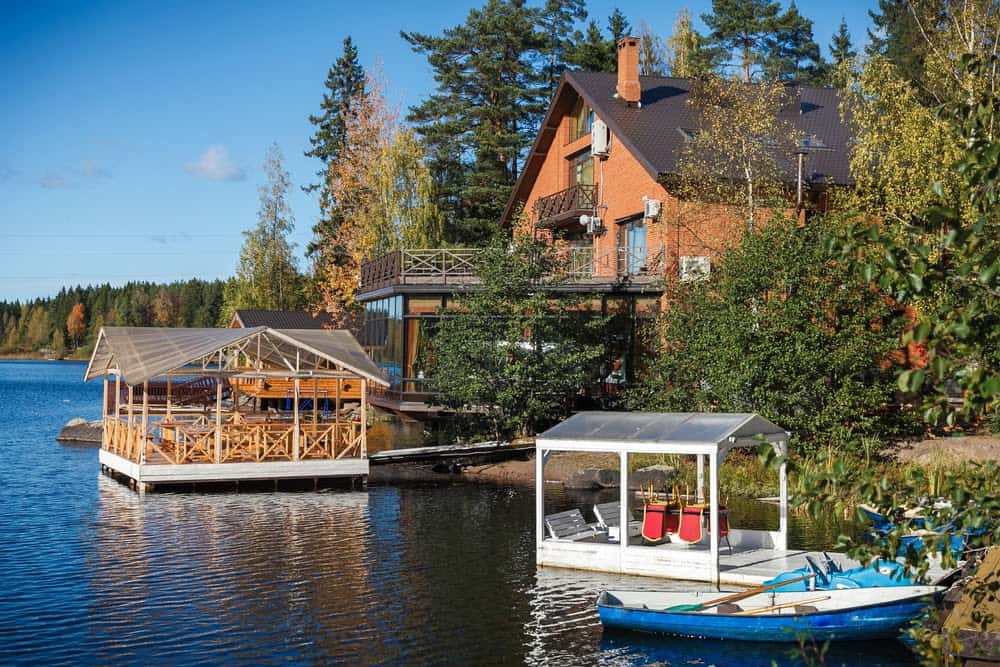If you’re like many people, you’ve probably considered buying a vacation home, also called a second home. There are lots of reasons why it might seem attractive: No more paying high prices for a hotel or a vacation home rental, more room and privacy for your family, no more being disappointed with your destination digs, and you can gather with extended family whenever it suits you.
But buying and owning a vacation home is a major financial decision, and comes with financing, tax and management issues. Here’s what you need to know:
Maybe you like to ski, maybe you like to sun. There are many good reasons – and good locations – to buy a vacation home. But, before you place your bets on a place, did you know there’s a special category of mortgage loans for vacation homes and other non-primary residences? Or that fees for property management for vacation rentals can be three times what you’d pay a property manager to manage a long-term rental property? Knowing that, here’s a rundown on the pros and cons of buying a vacation home before you start looking for properties.
Vacation Place Perks
- If you vacation often, you could save money in the long run. Say you spend two months at the beach each summer, your annual mortgage payments on a vacation home could be fairly close to what you pay to rent for two months. You’ll also be building equity.
- You may be able to use your vacation home as a cash cow when you aren’t there. Depending on where it is, this could turn the home into a serious money machine.
- Real estate values – especially in popular vacation areas – tend to go up over time. Even without renting it out, your vacation home could help you build wealth.
- If you don’t mainly use your vacation home as a rental property, you may be able to get tax breaks for mortgage interest and property taxes.
- You can totally personalize a vacation home and store your various vacay toys and trappings there: Beach toys or your skis, poles, boots and bindings can be at your beck and call.
- A vacation home could someday be your full-time home. Buying it when you’re relatively young could give you a great place to retire later.
Drawbacks To That Destination Dream
- Vacation homes are expensive, especially in popular destinations. Often, their median prices are far more than what you paid for your primary residence.
- The mortgage is just the minimum: You’ll also pay property taxes, insurance, utilities and other expenses at two homes!
- Financing a vacation home can be challenging. Lenders charge higher interest rates and want higher down payments than they would for a comparable primary home.
- Maintenance is on you. You’ll either have to handle issues yourself or pay someone else to do it.
- Real estate isn’t liquid. It can be tough to sell quickly without taking a significant hit. Many financial pros advise not to buy a vacation home – or any real estate – unless you plan to own it for at least five years.
Nuggets To Know
- You may be able to deduct your mortgage insurance and property taxes just as you would for a primary home. It depends on how much you rent out your vacation home: Do you live in it at least two weeks (14 days) out of the year or 10% of the days it’s rented out? If so, you can treat it as a vacation home instead of an investment property. (You’ll need to satisfy the condition that results in the higher number.)
- There’s a special IRS rule for properties that aren’t rented very often. Rent out your vacation home for 14 days or less each year, and you don’t have to report that rental income or pay any taxes on it.
- Many vacation destinations have restrictions on rentals. For example, in some Florida areas rentals for less than a month at a time are prohibited by the city without a costly “transient license” for the property.
- Some condominiums or homeowners associations (HOAs) also have clauses to discourage people from buying units just as investments, or don’t allow short-term rentals at all.
- Managing a vacation home can be tricky when you’re not nearby. And hiring a property manager to oversee it is a big expense. But many owners find it well worth the cost.
Financing The Fantasy
- The most well-known types of mortgages are for primary homes and investment properties. However, there’s a third option between the two: typically called “second home” mortgages. These are a bit tougher to qualify for than primary residence loans, and lenders often want larger down payments. You can expect a higher interest rate. Do you already have a mortgage on your primary home? Your income needs to be high enough to justify both mortgage payments.
- However, a second home mortgage tends to be significantly easier to qualify for than an investment property loan. And it’s also typically less expensive – in terms of interest rates and fees – than an investment property loan.
- A vacation home’s a larger risk to a lender: If you’re having trouble making the payments on your vacation home and the bank forecloses, you still have a primary home to live in! If your primary home is foreclosed upon, it’s a much worse situation to be in.
- Get preapproved by a reputable lender. Stricter requirements and higher costs mean there are fewer truly qualified buyers in the market for second homes. Being able to show sellers that you’re preapproved as a second home buyer can make your offers carry more weight.
When you’re ready to sashay into that vacay home, give Mid America Mortgage a call. We have the know-how and expertise that are the “keys” to making that second home a reality!



